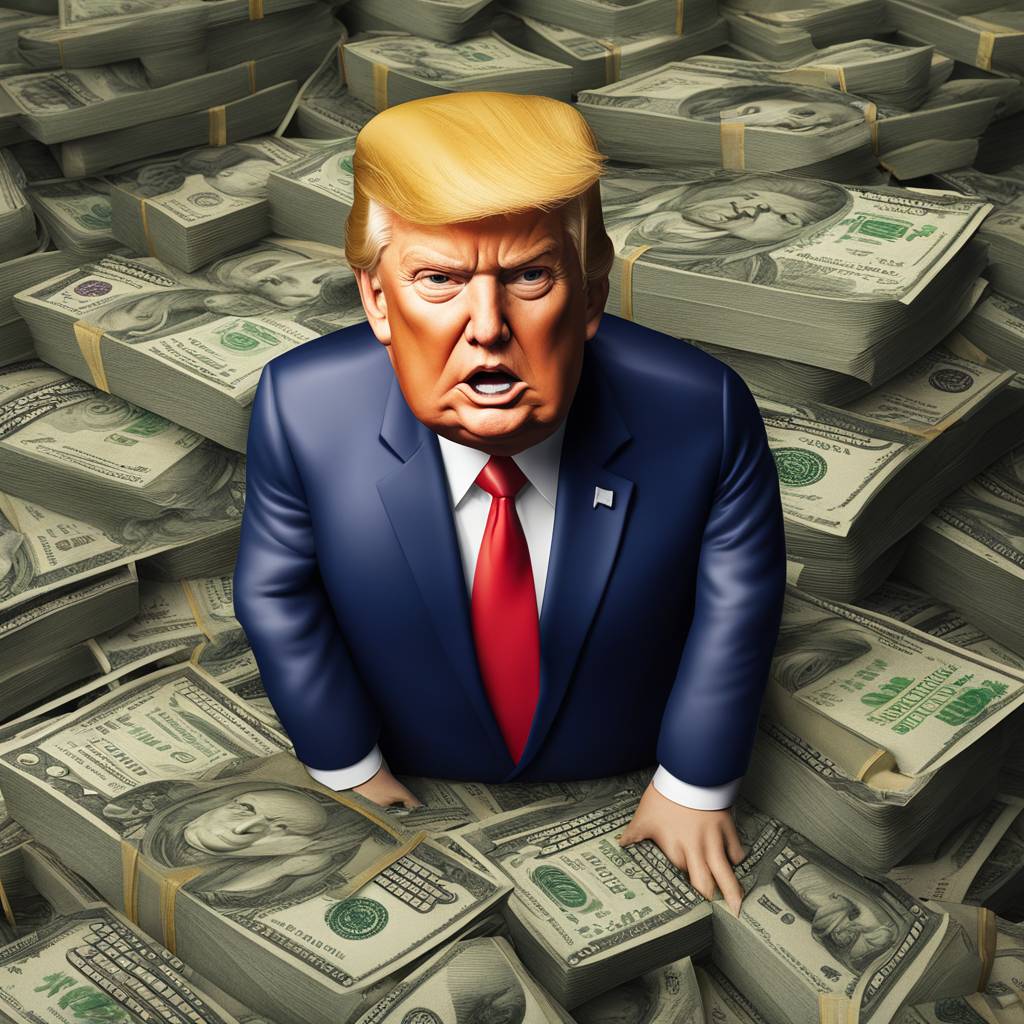In a recent legal development, a New York appeals judge rejected Donald Trump’s attempt to delay his criminal hush money trial on the basis of challenging the court-imposed gag order. This decision marked Trump’s second unsuccessful bid to postpone the trial in less than 24 hours. The gag order restricts Trump from speaking about likely witnesses in the case and making certain statements about related individuals, including lawyers and court staff, and their family members. The defense argued that the order unfairly limits Trump’s ability to respond to attacks from witnesses like Stormy Daniels and Michael Cohen, as well as raise concerns about a prosecutor working for the Manhattan District Attorney’s office. However, the judge denied Trump’s motion for a delay, which will now be considered by a panel of appeals court judges on the day the trial is set to begin.
The criminal hush money trial against Trump involves charges of falsifying business records to conceal a payment made to Stormy Daniels just prior to the 2016 presidential election, which Trump later won against Hillary Clinton. Trump has pleaded not guilty to the charges. The appeals judge’s decision comes after previous unsuccessful attempts by Trump to pause the trial, which were based on moving the case out of Manhattan Supreme Court. Trump’s legal team has also sought to have the presiding judge recuse himself from the trial, claiming an appearance of impropriety due to the judge’s daughter’s employment with a Democratic political consultant. However, these efforts have been met with resistance by the court, emphasizing the narrow focus of the gag order and the importance of upholding judicial integrity in the trial proceedings.
During a recent hearing where arguments were presented regarding the restrictions placed on Trump’s speech by the gag order, the Manhattan District Attorney’s office contended that the order was necessary to prevent personal attacks by Trump on individuals involved in the case. The defense team argued that Trump’s inability to respond to public criticisms from witnesses and raise concerns about the prosecutor assigned to the case was a violation of his rights. These conflicting viewpoints led to the appellate judge’s decision to deny Trump’s motion for a delay, which added to the series of legal setbacks faced by the former president in his efforts to postpone the trial. The rejection of Trump’s request underscores the court’s commitment to upholding the legal process and ensuring a fair trial for all parties involved.
As the hush money trial is set to proceed with jury selection in the coming days, Trump’s legal team continues to explore avenues to challenge the proceedings and seek delays through legal means, such as Article 78 appeals. Despite facing resistance from the court, Trump’s attorneys have persistently sought to challenge the gag order and the presiding judge’s impartiality, raising concerns about the fairness of the trial. The ongoing legal battles surrounding the criminal charges against Trump highlight the complex legal issues at stake and the intense scrutiny surrounding the proceedings. As the trial moves forward, the resolution of these legal challenges will determine the course of justice and the outcome of the case against the former president.













